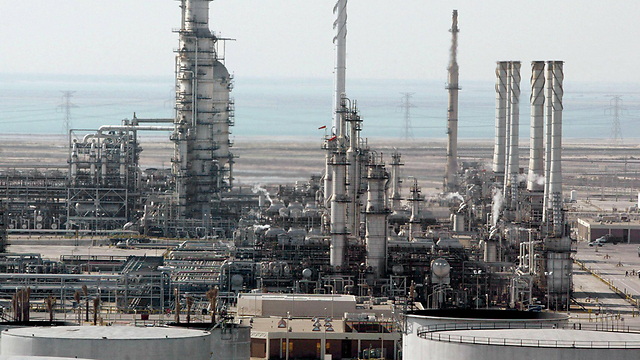
Shiite Sheikh Nimr al-Nimr, who was executed by Saudi Arabia
Saudi-Iranian crisis: An ongoing cold war
Analysis: Why has Saudi Arabia's leadership decided to aggravate its conflict with Tehran and how will heightened tensions affect fighting in Syria and Yemen?
While we were busy and occupied with the knifing terror and the search for the Dizengoff Street terrorist, another conflict point in one of the most explosive parts of the world - the Persian Gulf - has been escalating.
The most senior Shiite cleric in Saudi Arabia was executed last week, despite warnings from Iran's leaders about the act's ramifications. And indeed, the Iranian response was quick to follow: The Saudi embassy in Tehran and the consulate in Mashhad were torched and ransacked, and as a result, the ties between the two countries were severed.
The deterioration process between the countries began upon the establishment of the Shiite Islamic Republic in Iran in 1979. The rise to power of a radical Shiite religious regime, with pretensions and ambitions which go way beyond Iran's borders, posed a significant challenge to the Sunni regimes in the region, including the Wahhabi leadership of Saudi Arabia, with its radical Sunni religious line.
The countries experienced quite a few states of heightened tension in the past 37 years, including the Saudi support for Iraq during the Iran-Iraq War, the death of hundreds of Shiite Iranian pilgrims during the Hajj in 1987, and the terror attack in Khobar in 1996.
There is no doubt that the tensions increased even more following the Arab Spring, and that was reflected in the Saudi invasion of Bahrain in 2011 in order to silence the Shiite revolt there and in the new round in the historic Shiite-Sunni conflict, mainly in Syria, Iraq and Yemen.
Why has the Saudi leadership decided to take action which would be like adding fuel to the fire at this time? The answer may be hidden in the fact that according to the Saudi perception, aggravating the conflict could serve its interests. Iran, which until its agreement with the West in July 2015 was isolated and subject to tough sanctions, is about to see them lifted and about to return to the family of nations. It is taking part in the talks for solving the crisis in Syria, some ministers from Western countries have already visited Tehran, and there are talks about Iran joining the World Trade Organization. In addition, Iran is perceived by the Western world as one of the main powers capable of stopping the Islamic State.
The possibility that Iran will gain a better regional and international standing than in the past annoys the Saudis. For this reason, aggravating the battle against Tehran could cause the Iranians to take actions which will lead to renewed sanctions.
The oil may also be playing a part in Saudi Arabia's considerations. While its expenses are growing (the costs of the war in Yemen, the support for Sunni groups in the Shiite-Sunni battle, the purchase of advanced weapons, aid and development projects, the growing unemployment among young Saudis), the price of oil - which most of Saudi Arabia's income is based on - is at a constant decline. All this has led to a significant deficit and depleted Saudi Arabia's foreign-exchange reserves, and there is a concern that they will be eliminated within five years. Aggravating the conflict may send the oil prices up again, which will give the Saudi regime some breathing space.
What direction can the current round of tension develop in? Neither country can afford to enter a direct conflict. Therefore, the aid provided by each of them to its regional allies and militias is expected to continue and maybe even increase. It’s also reasonable to assume that the attempts to end the fighting in Syria and Yemen, where Iran and Saudi Arabia are on both sides of the divide, will not be sped up.
Another question is what will the rest of the Arab states in the Persian Gulf do. Bahrain has already taken sides and announced that it is cutting off its ties with Iran. Oman will prefer to remain neutral and try to maintain its status as mediator. Of the three remaining countries, the United Arab Emirates will likely support Saudi Arabia eventually, Qatar will try to maintain its relations with both sides, and Kuwait will likely try to play for time as well before making a decision.
Dr. Soli Shahvar is the director of the Ezri Center for Iran and Gulf Studies at Haifa University.











